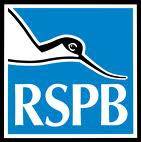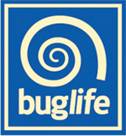Leading Kent Wildlife Groups Warn of Severe Threat to North Kent’s Nationally Important Wildlife
A planning application for a 5,000 house development is likely to cause extensive damage to the area’s wildlife, says Kent Wildlife Trust (KWT), the Royal Society for the Protection of Birds (RSPB) and Buglife – the Invertebrate Conservation Trust.
A military site at Lodge Hill near Chattenden has been earmarked for a major housing development. The wildlife groups will object to the outline planning application because of the threat to important wildlife. The proposal will have a damaging impact on the immediate environment and the neighbouring wood, which is designated a Site of Special Scientific Interest. For example, the site supports nationally important numbers of nightingales, a bird that has decreased by 60% in the past 15 years, as well as bats, lizards, grass snakes, adders, slow worms, newts, frogs, toads, badgers and rare insects.
Greg Hitchcock of KWT said, “Kent Wildlife Trust, Buglife and the RSPB all recognise the need for homes and jobs for people. Unfortunately the surveys undertaken fall short of accepted standards and the proposals to offset the environmental damage are not only inadequate, but inappropriate in places and contradictory in others.”
Sam Dawes of RSPB said, “It is outrageous that a development of this scale has been proposed on a site that is so important for some of our most iconic birds. Who has not been entranced by the song of the nightingale? The site is one of the most important in England for nightingales, and also supports many other dramatically declining birds”.
Sarah Henshall, Brownfield Conservation Officer of Buglife said “Previous studies of the site indicate that it could potentially be one of the most important sites in the UK for rare and endangered invertebrates including the shrill carder-bee. Invertebrates have largely been overlooked in the development plans – without proper surveys to find out what lives on the site how can they be protected?”
The application also fails to address the potential increased recreational disturbance by approximately 12,000 new residents to the internationally important wetlands of the Thames Medway and Swale.
“All three organisations understand the need for regeneration in North Kent, but believe this should not be at the expense of its much-loved wildlife,” said Sam Dawes. “We all work closely with Medway Council on nature conservation issues and are urging them to listen to our concerns”.
The RSPB, KWT and Buglife are calling for local people to object to the outline planning application by December 6th if they care about the future of North Kent’s wildlife.
For further information and to arrange an interview, please contact:
KWT: Greg Hitchcock, 01622 662012, greg.hitchcock@kentwildlife.org.uk
RSPB: Rolf Williams, 07767 872585, rolf.williams@rspb.org.uk
Buglife: Sarah Henshall, 01733 201210, sarah.henshall@buglife.org.uk
Photos available from Rolf Williams (RSPB) on request:
Singing nightingale photographed at RSPB Cliffe Pools on the Hoo Peninsula. Rolf Williams.
Feeding shrill carder-bee. Peter Harvey.
Notes to editors:
The plans can be viewed online at: www.medway.gov.uk, planning reference number MC/11/2516.
Responses can either be emailed to the planning.representation@medway.gov.uk or sent, marked for the attention of:
Carly Stoddart
Development, Economy and Transport
Regeneration, Community and Culture
Gun Wharf
Dock Road
Chatham
Kent
ME4 4TR
Include the planning number (MC/11/2516).
Site environmental protection
Chattenden Woods is notified as a Site of Special Scientific Interest (SSSI) on account of its nationally important woodland and scrub plants and wildlife. 34 hectares of the SSSI and adjoining scrub fall within the proposed footprint of the development.
A SSSI is designated by Natural England, (the statutory conservation organisation) and cover around 7% of the country’s land area. Over half of these sites, by area, are internationally important for their wildlife.
More on the threatened wildlife
According to the British Trust for Ornithology’s (BTO) breeding bird atlas, the UK population of nightingale declined 60% in the last 15 years. 27% of the total remaining population is in Kent. At least 1% of the UK population of nightingale will be affected by the Lodge Hill development, a conservative estimate because the site has not been adequately assessed.
The rich biodiversity on the proposed development site that is directly threatened includes:
At least 6 species of bat are using the site and there are 19 bat roosts in buildings scheduled for demolition; all UK bats are European Protected Species under the EU’s Conservation of Habitats and Species Regulations.
Turtle dove, cuckoo, song thrush, priority conservation species as identified by ‘Birds of Conservation Concern’ (BoCC) in their Red List, compiled by the statutory and non-governmental environment organisations (including the RSPB, BTO, and Natural England).
Bullfinch, on the Amber List of the BoCC.
Grass snake and great crested newt are Biodiversity Action Plan (BAP) species targeted for conservation action by the UK Government in response to signing the Convention on Biological Diversity.
The shrill carder bee is a BAP species and the Thames Gateway supports the most important remaining population of this native bumble bee in the UK.
Other rare native bumble bees are probably on site since the unfertilised soil will support wild flowers and associate pollinating insects, an asset to neighbouring commercial orchards.
Non Governmental Organisation information
The RSPB speaks out for birds and wildlife, tackling the problems that threaten our environment. The Royal Society for the Protection of Birds (RSPB) is registered charity: England and Wales no. 207076, Scotland no. SC037654 www.rspb.org.uk
Kent Wildlife Trust is the largest active conservation charity in Kent, charity no. 239992 http:/
Buglife is the only organisation in Europe devoted to the conservation of all invertebrates, and is passionately committed to saving Britain’s rarest ‘little’ animals, everything from bees to beetles, and spiders to snails. Today bugs are under threat as never before, “so help us to secure a diverse and wildlife-rich planet for future generations”. http://www.buglife.org.uk



